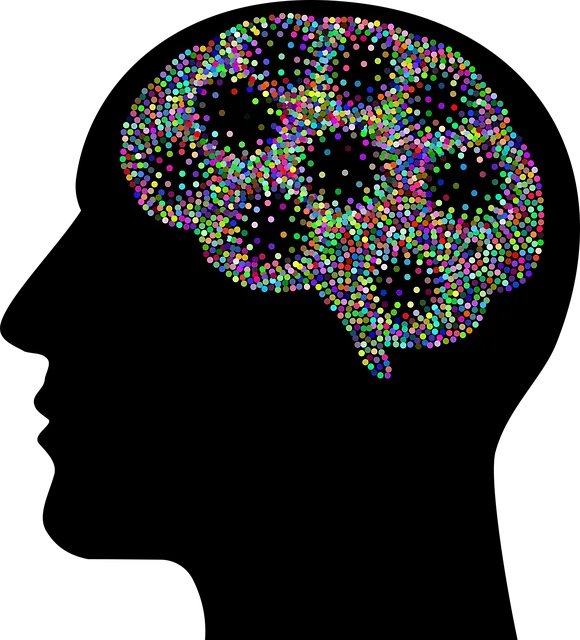Coping skills, especially mindfulness and self-care routines, are vital for mental health professionals to manage stress, negative emotions, and challenging cases in high-pressure environments. Golden Kaiser Permanente mental health services emphasize self-awareness, emotional intelligence, and proactive coping strategies, which involve open communication, mindfulness exercises, cognitive reframing, and healthy lifestyle habits like exercise and quality sleep. This holistic approach, including practical tools and education, fosters resilience and prevents burnout among healthcare providers while promoting better patient outcomes for Golden Kaiser Permanente mental health.
Coping skills development is an essential aspect of maintaining good mental health. Understanding these skills can significantly enhance our ability to navigate life’s challenges and stress. This article explores the importance of coping strategies, offering a glimpse into Kaiser Permanente’s comprehensive approach to mental health support. We’ll uncover ‘The Golden Rules’ for building resilience and provide practical daily tips for developing robust coping skills, all while emphasizing the value of professional resources like Kaiser Permanente in fostering robust mental well-being.
- Understanding Coping Skills and Their Significance in Mental Health
- The Golden Rules for Building Resilient Coping Strategies
- Kaiser Permanente's Approach to Mental Health Support and Coping Techniques
- Practical Tips for Daily Coping Skills Development
Understanding Coping Skills and Their Significance in Mental Health

Coping skills are the strategies individuals use to navigate and overcome stressful situations, negative emotions, or challenging life events. They serve as a crucial defense mechanism, helping us maintain mental well-being. Understanding and developing effective coping mechanisms is essential in managing stress and promoting Golden Kaiser Permanente mental health. This is particularly vital for mental health professionals who often deal with complex cases and high-pressure environments, making risk management planning through self-care routine development indispensable.
By incorporating practices like mindfulness meditation into their daily routines, individuals can enhance their ability to cope. Self-care routine development becomes a powerful tool for better mental health, allowing people to proactively manage stress, regulate emotions, and maintain resilience in the face of adversity. This proactive approach not only benefits personal well-being but also enables individuals to provide more effective support to others in their professional capacities.
The Golden Rules for Building Resilient Coping Strategies

Building resilient coping strategies is akin to mastering the Golden Rules that empower individuals to navigate life’s challenges with fortitude. At the heart of this, Kaiser Permanente mental health services underscore the significance of self-awareness and emotional intelligence. Understanding your triggers and emotions is the first step towards effective management; it allows for proactive responses rather than reactive behaviors.
Communication strategies play a pivotal role in this process. Open and honest dialogue with trusted peers, family, or Trauma Support Services professionals can help individuals process experiences, gain new perspectives, and build coping mechanisms that are both healthy and sustainable. Moreover, Self-Esteem Improvement initiatives, such as mindfulness exercises and cognitive reframing, equip people with tools to challenge negative self-talk, fostering a positive inner dialogue that bolsters resilience.
Kaiser Permanente's Approach to Mental Health Support and Coping Techniques

Kaiser Permanente, renowned for its comprehensive healthcare services, takes a holistic approach to mental health support. They recognize that fostering resilience and coping skills is an integral part of overall well-being. Their strategy involves not only providing access to professional therapy but also empowering individuals with practical tools for self-care routine development. This includes encouraging regular exercise, mindfulness practices, and healthy sleep habits as foundational elements of a robust mental health regimen.
By promoting inner strength development, Kaiser Permanente equips its members with the resources needed to navigate life’s challenges. They offer workshops and educational materials that teach effective coping techniques for stress management. Additionally, they emphasize risk management planning specifically tailored for mental health professionals, ensuring they have the tools to maintain their own well-being while supporting others.
Practical Tips for Daily Coping Skills Development

Developing coping skills is a valuable asset for anyone, especially those in the healthcare industry where stress and emotional demands are high. Golden Kaiser Permanente mental health resources emphasize the importance of self-care and resilience. Here are some practical tips to incorporate into your daily routine:
Start each day with a mindful practice. This could be as simple as taking a few minutes for deep breathing exercises or meditation. Enhancing your emotional intelligence allows you to better understand and manage your feelings, making it an effective burnout prevention strategy for healthcare providers. Incorporating moments of stillness can help center yourself, reduce stress, and set a positive tone for the day ahead. Additionally, engaging in regular physical activity is an excellent way to boost your inner strength development. Whether it’s a walk outside or a yoga session, these activities promote healthy outlets for releasing tension and clearing your mind.
Coping skills development is a powerful tool in navigating life’s challenges, especially when it comes to maintaining and improving mental health. By understanding and adopting effective strategies, as outlined in this article, individuals can enhance their resilience and overall well-being. Kaiser Permanente’s holistic approach to mental health support serves as a beacon, emphasizing the importance of practical techniques in daily life. Remember that building resilient coping strategies is an ongoing process, and with consistent practice, one can foster a healthier, more balanced mindset, ensuring a brighter future.

